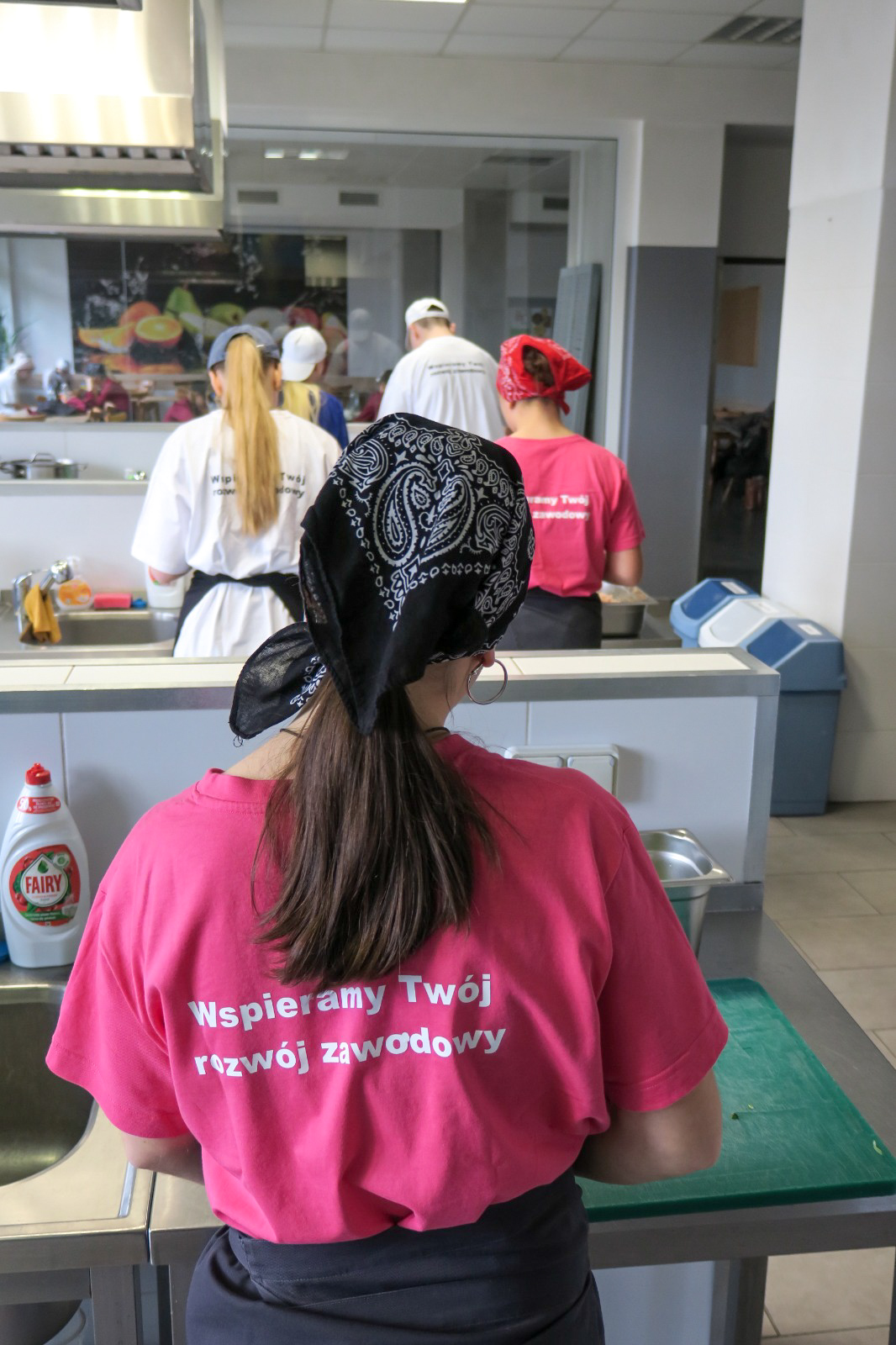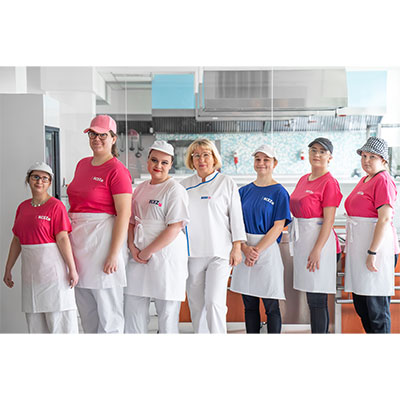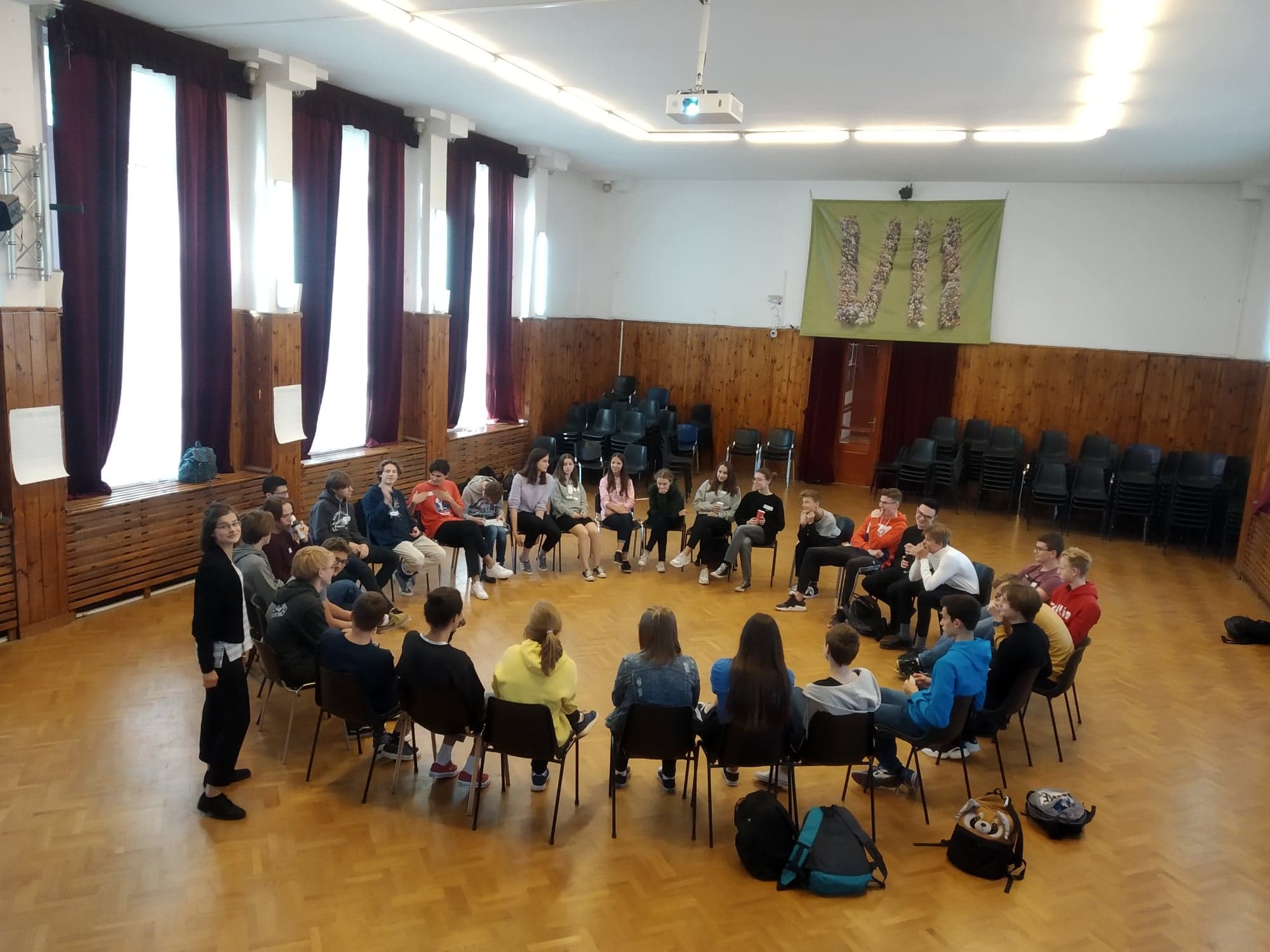
Fifty trainee chefs use surplus food from food stores to cook three-course meals for those in need, preventing food waste while feeding the hungry.
RESPONDING TO THE ISSUE OF FOOD WASTE
In Poland, 5 million tons of food are wasted every year. Although over 50% is wasted by households, food stores also significantly contribute to this issue. Since 2019, large-format stores have been obliged by Polish law to donate unsold food, when its expiration date is approaching, to NGOs who distribute it to those in need. In Rybnik, the local authorities decided to go step further and bring all relevant stakeholders together - the local government, educational institutions, NGOs, social welfare, and business - to jointly respond to the current problem of food waste and the need for culinary vocational education.
SURPLUS FOOD COOKED BY STUDENTS
On the initiative of the Rybnik Vocational Educational Centre, young people have been included in a project to prevent food waste. Fifty students from vocational schools, training as chefs and food technicians, took up the challenge. As a material for learning cooking, they receive surplus food from stores (through the Silesian Food Bank). Every day, under the supervision of teachers, they prepare meals from products that are about to expire, during practical vocational workshops. This system provides the trainees with an interesting challenge, as surplus food is donated by stores twice a week and they never know what products will be delivered by the Food Bank to the workshop. Both teachers and students must demonstrate creativity and flexibility.
FROM FOOD WASTE TO FOOD AID
On average, 100 three-course meals (soup, main, and dessert) are prepared every week (so far, 1,400 meals). They are then passed on to social workers who distribute the meals to people in need, mainly the homeless and those living in poverty. Some of the meals go to community fridges, open 24 hours a day. Only reusable packaging is used in the process. This permanent mechanism has a triple impact: handling food waste, effective vocational education, and food aid. It acts towards sustainability as young people, who will be chefs in future, are sensitised to the issues of food waste at the beginning of their professional career.









